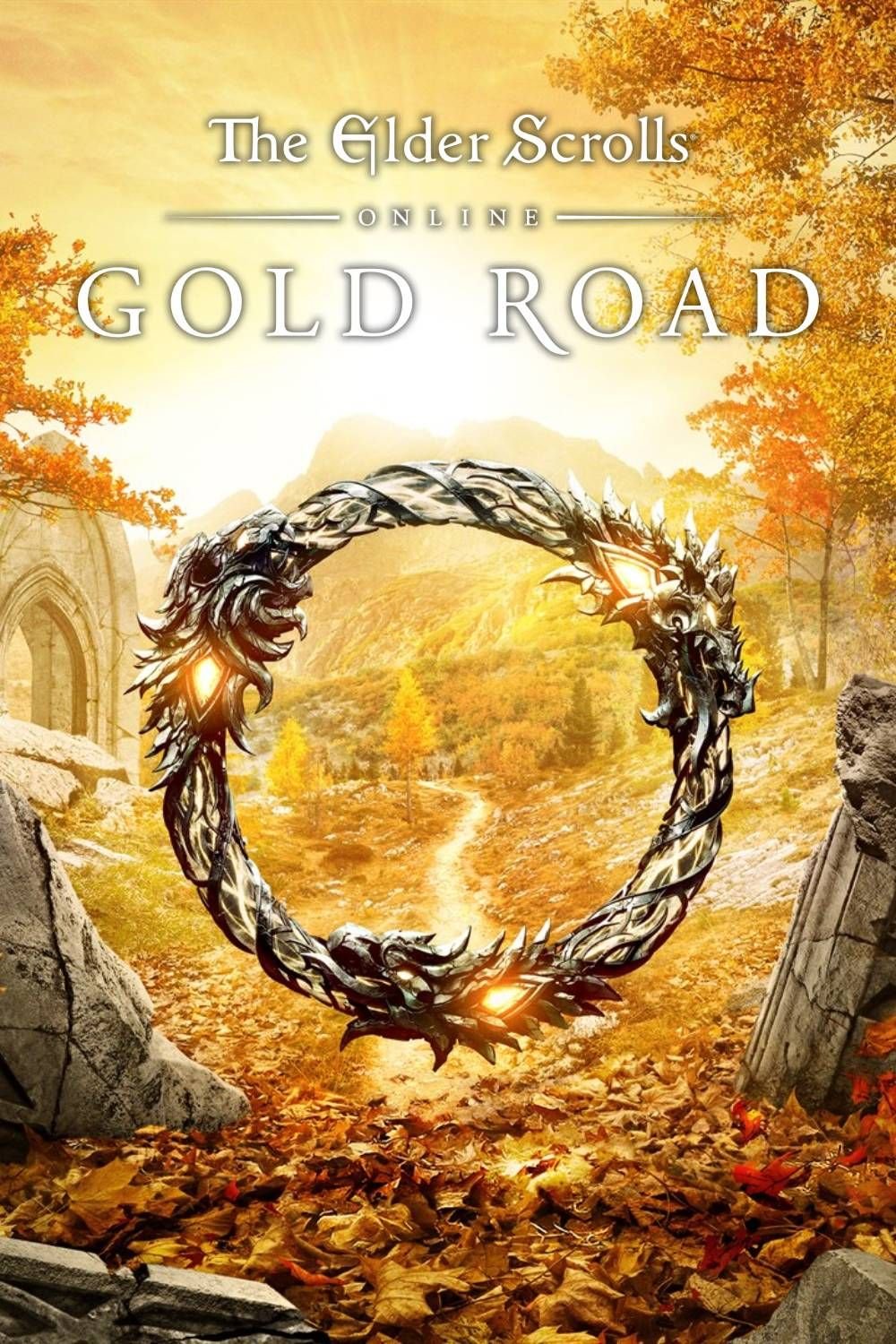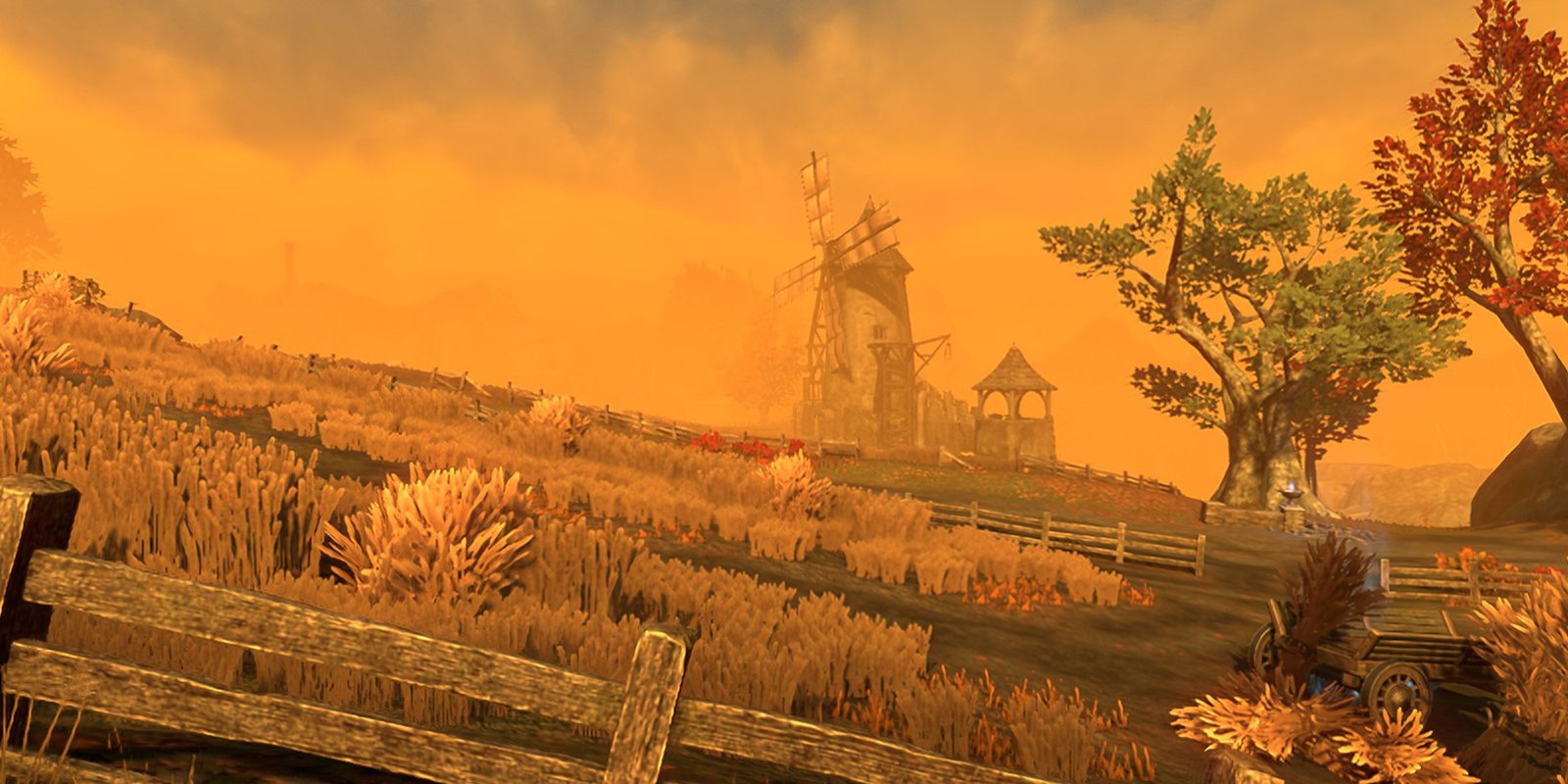The Elder Scrolls Online: Gold Road’s story is the equivalent of framing Star Wars from the perspective of the Empire, only George Lucas really wants you to think the Empire are the good guys as they obliterate Alderaan from orbit and slaughter the rebel alliance in cold blood.
Spoilers for Gold Road follow.
Gold Road sends you to Cyrodil’s West Weald for two reasons, 1) the Daedric Prince Ithelia, whose very existence is a threat to reality, has returned, and 2) a faction of wood elves called the Recollection is summoning jungles as they try to bring back their lost Ayleid culture.
The Recollection was an opportunity to broach Tamriel’s history of human empires paving over the history of elves and pushing them out of their homelands, tackling the raw, recent history of their colonisation that permeates throughout every single TES game. Instead, they’re depicted as another simple group of evildoers, seeding into Bosmer culture as spies and turncoats.
One of our allies in Gold Road – a higher-up in the Empire – even starts to accuse random wood elves of being part of the Recollection, which feels unsettlingly close to the post 9/11 hysteria towards Muslims. But it’s swept under the rug and never brought up again.
Their king, a comical pantomime villain, is another Daedra-summoning coward who runs away at every opportunity after conjuring portals to thrust bosses at us, reducing a sympathetic cause to a painfully two-dimensional one. Throughout the main story, they’re nothing more than cannon fodder, with the finale even brushing aside their ideas as a “mad dream”.
However, this supposed “mad dream” was to restore the Ayleid culture that both Hermaeus Mora and the Empire ripped from them, and to bring back the jungles of Valenwood that had been torn down to make way for human civilisation (these jungles even lift the Ayleid ruins out of the dirt, which would be beautiful imagery if the narrative didn’t undercut it at every turn).
It’s far from a black-and-white story of evil and good, as we discover that the Recollection was founded to uncover memories that were literally stolen from their ancestors, the indigenous elves of Tamriel. But the main quest never unpacks who they are, even reducing the last remnants of their group to mere “stragglers” who are to be unquestionably wiped out.
At some point in the narrative their goal snaps from restoring the Ayleid civilisation to destroying the West Weald, which is less of a believable continuation of the themes set up in the beginning and more of an excuse to completely eradicate them. The whole narrative is flimsy, with even Ithelia going from a sympathetic, charming character who clearly has no ill-will to a villain hellbent on the destruction of everything.
The motivations driving these antagonists are built on rickety foundations that don’t hold their weight, and putting aside the tone-deaf politics of the story—which couldn’t have come at a worse time—it’s painfully simplistic.
The story even ends with Bosmer, who had nothing to do with the Recollection, making amends to the
Empire
for their actions, promising not to extend beyond their borders into land that was ripped from them to begin with. Insert the Are we the Baddies? meme here.
The Recollection’s king is a rehash of the Veiled Heritance plot of the base game, and restoring Ithelia’s memories quickly devolves into another boss fight against an unleashed Daedric Prince trying to destroy everything so they can remake the universe in their image. We’ve been here before.
Promises from a Prince who can see the many possible futures like different paths splintering from the main road is an unbelievably interesting concept, one that comes so close to its full potential when we visit an inn at the crossroads of fate. However, exploration of this idea amounts to venturing into the basement, stepping through portals, and meeting different Ithelias in the same generic cave, one melancholy, one angry, and one content. Hardly the exciting prospect of a fractured future where she can do anything and everything.
Gameplay-wise, Gold Road is rich with interesting ideas to spice up the typical quest format. At one point, we’re tasked with defending a fortress from waves of Daedra, using a ballista to hold them back. But it’s clear that ESO is pushing its limits after a decade, not able to match the ambition of its developers’ vision. If you fail to take out the Daedra, they just stand at the barricade until you fire at them again. Even if we weren’t busy eradicating one of the most sympathetic ‘villains’ in all of ESO, the story never lives up to its potential.
It’s a shame because Gold Road is otherwise one of the best chapters of ESO yet. The zone is varied and beautiful, every corner a different experience, making exploration a treat like never before. The bosses are some of the most mechanically dense and engaging outside of dungeons, finally bringing the world zone up to par with the rest of the PvE content. And the new Scribing mechanic—a precursor to spell crafting—will radically change how we craft builds, complemented by the Order of the Lamp who have one of the most striking aesthetics in any faction of the game.
All of that is undercut by the foundations of the chapter, the main story which everything builds from. I felt dirty going from quest to quest, told to slaughter people fighting for their home and culture against a tyrannical empire who would rather uphold their Imperial status quo. At every corner, I was treated like a hero for my actions, but I’ve never felt more like a villain.

The Elder Scrolls Online: Gold Road
Played on PC.
- Most interesting bosses we?ve ever had, matching the quality of dungeons.
- Varied and beautiful zone, a treat to explore.
- Scribing is an intuitive but dense mechanic that will reinvigorate build crafting.
- Main story is offensively tone deaf.
- Even putting that aside, it retreads tired beats with thin character motivations.
- Ithelia never lives up to her potential.
- ZeniMax Online is pushing up against the wall of what ESO is capable of versus their ambitions.




